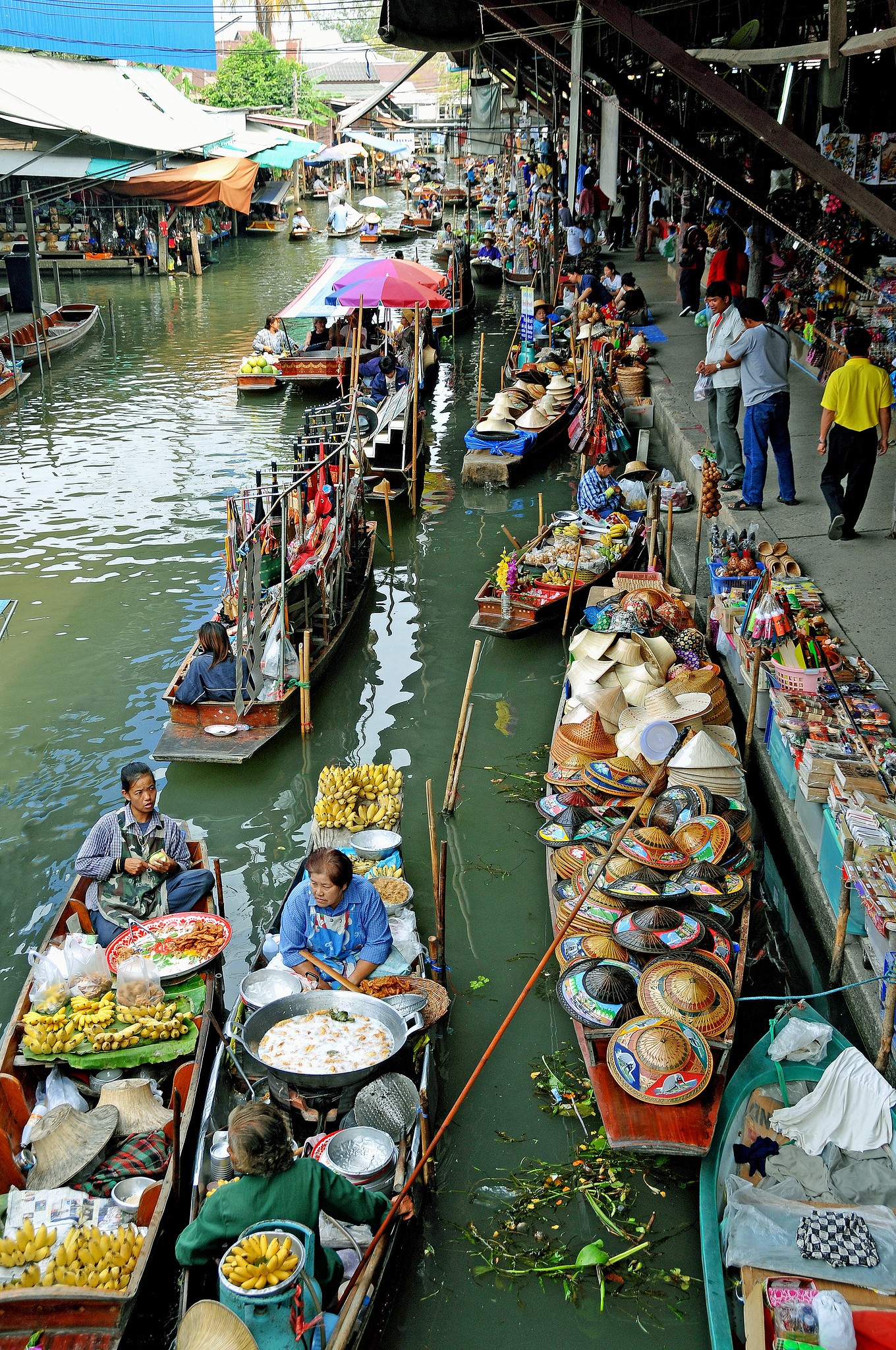Globalization’s profound influence on tourism is undeniable, reshaping how we explore and experience the world. SIXT.VN offers seamless travel solutions, making it easier than ever to discover the beauty and culture of Vietnam. This article explores the intricate connections between globalization and tourism, offering insights and practical guidance for your next adventure. Let’s delve into the interplay of these global forces, optimizing your travel experiences with the best services available.
1. Understanding the Intertwined Relationship: Globalization and Tourism
How does globalization influence the tourism sector, and vice versa? Globalization fuels tourism through increased connectivity and accessibility, while tourism, in turn, promotes global understanding and cultural exchange. According to research from the World Tourism Organization (UNWTO), in 2019, international tourist arrivals reached 1.5 billion, showcasing the massive scale of global tourism driven by interconnectedness. Globalization and tourism share a symbiotic relationship characterized by mutual influence and dependence.
1.1. Defining Globalization in the Context of Tourism
What does globalization mean in the context of tourism? Globalization, within the realm of tourism, encompasses the increasing interconnectedness of economies, cultures, and societies worldwide, facilitating the movement of travelers, goods, and ideas across borders. It encompasses economic, cultural, political, and technological exchanges, leading to a more integrated global tourism landscape.
1.2. The Historical Evolution of Globalization and Travel
How has globalization evolved alongside travel and tourism throughout history? Globalization has historically evolved alongside travel and tourism, beginning with ancient trade routes and expanding rapidly with advancements in transportation and technology. The Silk Road, for instance, facilitated the exchange of goods and ideas between the East and West. Today, modern transportation, like air travel, and digital connectivity have accelerated this process, making global travel more accessible and interconnected.
 Narrow boats filled with food, clothes, hats, and much more float in a canal alongside a market.
Narrow boats filled with food, clothes, hats, and much more float in a canal alongside a market.
1.3. The Role of Technology in Globalized Tourism
How has technology shaped the globalization of tourism? Technology has significantly shaped the globalization of tourism by enhancing accessibility, convenience, and information sharing. Online booking platforms, mobile apps, and social media have revolutionized travel planning, making it easier for travelers to discover destinations, compare prices, and share experiences. Innovations like virtual reality (VR) and augmented reality (AR) further enrich the travel experience, providing immersive previews of destinations and attractions.
2. How Globalization Drives the Growth of Tourism
In what ways does globalization stimulate and support the expansion of the tourism industry worldwide? Globalization propels the expansion of the tourism industry through enhanced global mobility, demographic shifts, and increased awareness of new destinations. Advancements in transportation infrastructure, such as high-speed trains and budget airlines, make travel more accessible and affordable. Moreover, globalization fosters cultural exchange and understanding, encouraging individuals to explore diverse destinations and experiences.
2.1. Increased Global Mobility and Accessibility
How has globalization enhanced global mobility and made travel more accessible to individuals worldwide? Globalization has revolutionized global mobility by making travel more accessible and affordable. Modern transportation systems, including aircraft, cruise ships, and high-speed trains, enable people to traverse vast distances quickly and conveniently. Furthermore, the rise of budget airlines and online travel agencies has lowered travel costs, opening up opportunities for more individuals to explore the world.
2.2. Demographic Trends and Tourism
How do shifting demographic trends influenced by globalization impact the tourism industry? Shifting demographic trends significantly impact the tourism industry by creating diverse traveler segments with unique needs and preferences. According to the United Nations Department of Economic and Social Affairs (2019a), the global population is aging, with a growing percentage of individuals over 65. This demographic shift drives demand for senior-friendly travel products and services. Simultaneously, increased urbanization and migration patterns lead to a greater interest in cultural and heritage tourism, as individuals seek to reconnect with their roots and explore diverse cultural traditions.
2.3. The Impact of Globalization on Destination Awareness
How does globalization contribute to increased awareness of new and emerging tourist destinations? Globalization significantly contributes to increased awareness of new destinations through enhanced connectivity, information sharing, and marketing efforts. Social media platforms, travel blogs, and online travel agencies play a crucial role in showcasing destinations, highlighting their unique attractions, and engaging potential visitors. Additionally, international travel fairs and exhibitions provide opportunities for destinations to promote themselves to a global audience, fostering awareness and interest.
3. Challenges and Considerations in a Globalized Tourism Landscape
What are the main challenges and considerations that arise in the tourism industry as a result of globalization? Globalization introduces challenges such as terrorism threats, homogenization, and poverty, which affect the tourism industry. Safety and security concerns can deter travelers, while cultural homogenization threatens unique local identities. Additionally, the unequal distribution of economic benefits from tourism can exacerbate poverty in certain regions.
3.1. Addressing Safety and Security Concerns
How can the tourism industry effectively address safety and security concerns in an increasingly interconnected world? The tourism industry can effectively address safety and security concerns by implementing comprehensive risk management strategies, enhancing security measures, and fostering collaboration among stakeholders. Enhanced security measures, such as increased airport security and surveillance, can deter potential threats. Collaboration between governments, tourism organizations, and law enforcement agencies is essential for sharing information, coordinating responses, and ensuring the safety of travelers.
3.2. Combating Cultural Homogenization
How can the tourism industry combat cultural homogenization and preserve the authenticity of local cultures? The tourism industry can combat cultural homogenization by promoting sustainable tourism practices, supporting local communities, and fostering cultural exchange. Encouraging travelers to engage with local cultures respectfully and responsibly helps preserve cultural heritage and traditions. Additionally, supporting local businesses, artisans, and cultural initiatives ensures that tourism benefits local communities and contributes to the preservation of cultural identity.
 People dressed in classic Disney character costumes perform for a crowd of children.
People dressed in classic Disney character costumes perform for a crowd of children.
3.3. Mitigating the Impact of Poverty
What strategies can be employed to mitigate the impact of poverty in tourism destinations affected by globalization? Strategies to mitigate the impact of poverty in tourism destinations include promoting inclusive tourism practices, supporting local entrepreneurship, and investing in community development. Inclusive tourism ensures that economic benefits are distributed equitably among local communities, providing opportunities for employment, income generation, and skills development. By empowering local communities and promoting sustainable development, tourism can contribute to poverty reduction and improved living standards.
4. The Positive Impacts: Tourism as a Force for Good in Globalization
How does tourism act as a catalyst for positive change and global betterment within the context of globalization? Tourism serves as a catalyst for positive change by fostering peace, promoting cultural exchange, and driving economic growth. By facilitating interactions between people from diverse backgrounds, tourism promotes understanding, tolerance, and empathy, contributing to a more peaceful and interconnected world.
4.1. Fostering Peace and Understanding
How does tourism contribute to fostering peace and understanding among different cultures and nations? Tourism fosters peace and understanding by facilitating cross-cultural interactions, promoting empathy, and breaking down stereotypes. When travelers engage with local communities, they gain firsthand insights into different cultures, perspectives, and lifestyles. These interactions promote mutual respect and understanding, fostering stronger relationships between nations and contributing to a more peaceful global community.
4.2. Promoting Cultural Exchange and Preservation
How does tourism play a role in promoting cultural exchange and preserving cultural heritage in a globalized world? Tourism plays a crucial role in promoting cultural exchange by showcasing diverse cultural traditions, arts, and heritage. Cultural tourism encourages travelers to immerse themselves in local cultures, learn about their history, and appreciate their unique customs. By supporting cultural tourism initiatives, destinations can preserve their cultural heritage, promote cultural pride, and generate economic benefits for local communities.
 Dancers in grass skirts, board shorts, and leis perform on a stage.
Dancers in grass skirts, board shorts, and leis perform on a stage.
4.3. Driving Economic Growth and Development
How does tourism contribute to driving economic growth and sustainable development in various regions around the world? Tourism drives economic growth by generating revenue, creating employment opportunities, and stimulating investment in infrastructure and services. According to the World Travel & Tourism Council (WTTC), in 2019, the travel and tourism sector contributed 10.4% to global GDP and supported 330 million jobs worldwide. By attracting visitors and generating economic activity, tourism helps diversify economies, reduce poverty, and improve living standards in many regions around the world.
5. The Impact of Tourism on Cultural Homogenization
Does tourism lead to cultural homogenization, and if so, what are the implications for local identities? Tourism can lead to cultural homogenization when it promotes the adoption of Western values and lifestyles, potentially eroding unique local identities. This process can result in the standardization of cultural practices, cuisine, and entertainment, making destinations feel increasingly similar and less authentic.
5.1. Examining the Spread of Western Values
How does the spread of Western values through tourism impact local cultures and traditions? The spread of Western values through tourism can impact local cultures by influencing consumer preferences, lifestyle choices, and cultural norms. Western-style accommodations, cuisine, and entertainment options often cater to the tastes of international tourists, potentially overshadowing local cultural offerings. This can lead to the erosion of traditional practices and the adoption of Westernized customs, diminishing the uniqueness of local cultures.
5.2. Case Studies of Cultural Homogenization
What are some notable case studies that illustrate the phenomenon of cultural homogenization in tourism destinations? Notable case studies of cultural homogenization in tourism destinations include the proliferation of fast-food chains, Western-style hotels, and souvenir shops selling mass-produced goods. In some destinations, traditional arts and crafts are replaced by generic tourist merchandise, while local cuisine is adapted to cater to international palates. These trends can diminish the authenticity of the destination and undermine the cultural identity of local communities.
5.3. Strategies for Preserving Cultural Diversity
What strategies can tourism destinations implement to preserve cultural diversity and authenticity in the face of globalization? Tourism destinations can implement several strategies to preserve cultural diversity, including supporting local artisans, promoting cultural heritage tourism, and regulating development to protect cultural sites. By empowering local communities and promoting sustainable tourism practices, destinations can safeguard their cultural heritage and ensure that tourism benefits local communities.
6. Tourism and Cultural Commodification: A Delicate Balance
How does tourism contribute to the commodification of culture, and what steps can be taken to ensure a respectful balance between economic gains and cultural preservation? Tourism contributes to cultural commodification by assigning monetary value to cultural elements, such as artifacts, traditions, and performances. This commodification can lead to the degradation or exploitation of cultural heritage if not managed responsibly.
6.1. Understanding Cultural Commodification
What is cultural commodification, and how does it manifest in the context of tourism? Cultural commodification refers to the process of turning cultural elements into marketable commodities for sale to tourists. This can manifest in various forms, such as the commercialization of traditional ceremonies, the sale of mass-produced souvenirs, and the staging of cultural performances for tourist consumption. While cultural commodification can generate economic benefits for local communities, it can also lead to the trivialization and distortion of cultural heritage.
6.2. The Ethical Considerations
What are the ethical considerations that arise when cultural elements are commercialized for tourism purposes? Ethical considerations in cultural commodification include concerns about authenticity, exploitation, and cultural degradation. When cultural elements are commercialized, there is a risk that they may be misrepresented or adapted to cater to tourist expectations, compromising their authenticity. Additionally, the commercialization of culture can lead to the exploitation of local communities, who may not receive fair compensation for their cultural contributions.
6.3. Promoting Responsible Tourism Practices
How can responsible tourism practices help mitigate the negative impacts of cultural commodification and promote cultural preservation? Responsible tourism practices can help mitigate the negative impacts of cultural commodification by prioritizing cultural preservation, supporting local communities, and promoting ethical consumption. By encouraging travelers to engage with local cultures respectfully and responsibly, tourism destinations can ensure that tourism benefits local communities and contributes to the preservation of cultural heritage.
7. Tourism’s Influence on World Views: Shaping Global Perspectives
How does tourism influence our perceptions and understanding of the world, shaping global perspectives and attitudes? Tourism shapes our perceptions of the world by exposing us to diverse cultures, lifestyles, and perspectives. By traveling to new destinations and interacting with local communities, travelers gain firsthand insights into different ways of life, challenging their preconceived notions and expanding their understanding of the world.
7.1. The Concept of “Tourism World-Making”
What is “tourism world-making,” and how does it influence travelers’ perceptions of destinations? “Tourism world-making” refers to the way in which destinations are marketed and presented to tourists, shaping their perceptions and expectations. Destination marketing efforts often focus on highlighting the most appealing aspects of a destination, such as its natural beauty, cultural attractions, and recreational opportunities. This can create a selective and idealized image of the destination, which may not fully reflect the realities of life for local communities.
 An elephant lies in a stream while a person washes his body with a brush.
An elephant lies in a stream while a person washes his body with a brush.
7.2. Authenticity of Experience
How important is the concept of authenticity in tourism, and what factors contribute to authentic travel experiences? Authenticity is a central concept in tourism, referring to the degree to which travel experiences are perceived as genuine, original, and true to local culture. Factors that contribute to authentic travel experiences include interacting with local communities, participating in cultural activities, and exploring off-the-beaten-path destinations. However, the pursuit of authenticity can be subjective, as what is considered authentic may vary depending on individual perspectives and expectations.
7.3. Encouraging Responsible Travel
What measures can be taken to encourage travelers to engage with destinations in a more responsible and meaningful way? Measures to encourage responsible travel include promoting sustainable tourism practices, supporting local businesses, and educating travelers about cultural etiquette and environmental conservation. By providing travelers with information and resources, destinations can empower them to make informed choices and contribute to the well-being of local communities and the environment.
8. Navigating the Future of Tourism in a Globalized World
What key trends and strategies will shape the future of tourism in an increasingly globalized world? The future of tourism will be shaped by key trends such as sustainable tourism, technological innovation, and experiential travel. Destinations will need to adopt sustainable practices to minimize their environmental impact and ensure the long-term viability of their tourism industries. Technological innovations, such as artificial intelligence and virtual reality, will transform the way travelers plan, experience, and share their travel experiences. Additionally, there will be a growing demand for experiential travel, with travelers seeking immersive and authentic experiences that connect them with local cultures and communities.
8.1. Sustainable Tourism Initiatives
What are some innovative sustainable tourism initiatives that are being implemented around the world? Innovative sustainable tourism initiatives include ecotourism projects, community-based tourism programs, and carbon offsetting schemes. Ecotourism projects focus on minimizing the environmental impact of tourism by promoting conservation, education, and responsible travel practices. Community-based tourism programs empower local communities to participate in tourism development, ensuring that tourism benefits local communities. Carbon offsetting schemes allow travelers to compensate for the carbon emissions associated with their travel by investing in renewable energy projects or reforestation initiatives.
8.2. The Role of Technology in Shaping Tourism
How will emerging technologies, such as AI and VR, continue to shape the tourism landscape in the future? Emerging technologies will continue to transform the tourism landscape by enhancing personalization, improving accessibility, and creating immersive travel experiences. Artificial intelligence (AI) can be used to personalize travel recommendations, optimize travel itineraries, and provide real-time customer support. Virtual reality (VR) can provide travelers with virtual tours of destinations, allowing them to experience attractions and activities before they even arrive.
8.3. The Rise of Experiential Travel
Why is experiential travel becoming increasingly popular, and how can destinations cater to this growing demand? Experiential travel is becoming increasingly popular as travelers seek authentic and meaningful experiences that connect them with local cultures and communities. Destinations can cater to this demand by offering immersive cultural activities, culinary tours, and adventure experiences that allow travelers to engage with local traditions and lifestyles. By providing travelers with opportunities for personal growth and cultural exchange, destinations can create memorable and transformative travel experiences.
9. SIXT.VN: Your Partner in Exploring Vietnam
How can SIXT.VN enhance your travel experience in Vietnam, providing seamless and reliable services? SIXT.VN offers a wide range of services to enhance your travel experience in Vietnam, including airport transfers, hotel bookings, tour packages, and car rentals. With SIXT.VN, you can enjoy seamless and hassle-free travel, allowing you to focus on exploring the beauty and culture of Vietnam.
9.1. Services Offered by SIXT.VN
What specific travel services does SIXT.VN provide to assist visitors in planning and enjoying their trip to Vietnam? SIXT.VN provides a comprehensive range of travel services, including:
- Airport Transfers: Enjoy convenient and reliable airport transfers to your hotel or destination.
- Hotel Bookings: Choose from a wide selection of hotels to suit your budget and preferences.
- Tour Packages: Explore Vietnam with expertly curated tour packages that showcase the country’s highlights.
- Car Rentals: Rent a car and explore Vietnam at your own pace, with a variety of vehicles to choose from.
9.2. Benefits of Using SIXT.VN
What are the key benefits of choosing SIXT.VN for your travel needs in Vietnam? The key benefits of using SIXT.VN include:
- Convenience: Enjoy seamless and hassle-free travel planning with our easy-to-use online platform.
- Reliability: Count on our reliable services and professional staff to ensure a smooth and enjoyable travel experience.
- Affordability: Benefit from competitive prices and special offers to make your travel more affordable.
- Customer Support: Receive dedicated customer support to assist you with any questions or concerns.
9.3. Contact Information
How can interested travelers get in touch with SIXT.VN to learn more about their services and offerings? You can contact SIXT.VN through the following channels:
- Address: 260 Cau Giay, Hanoi, Vietnam
- Hotline/Whatsapp: +84 986 244 358
- Website: SIXT.VN
10. Frequently Asked Questions (FAQs)
10.1. How does globalization impact the environment through tourism?
Globalization increases tourism, which can lead to environmental degradation through pollution, overuse of resources, and habitat destruction. However, it also promotes awareness and funding for conservation efforts.
10.2. What are the economic benefits of tourism in developing countries?
Tourism can boost local economies by creating jobs, generating revenue, and attracting foreign investment. However, it can also lead to economic dependence and exploitation of local resources.
10.3. How can sustainable tourism practices be implemented effectively?
Sustainable tourism involves minimizing environmental impact, respecting local cultures, and benefiting local communities. This can be achieved through eco-friendly accommodations, responsible tour operators, and community-based tourism initiatives.
10.4. What role does technology play in promoting responsible tourism?
Technology can promote responsible tourism by providing information about sustainable travel options, connecting travelers with local communities, and monitoring environmental impact.
10.5. How does cultural exchange benefit both tourists and local communities?
Cultural exchange enriches tourists’ experiences by providing insights into different cultures, while also promoting understanding, tolerance, and respect for local traditions.
10.6. What are the challenges of managing tourism in UNESCO World Heritage sites?
Managing tourism in UNESCO sites involves balancing preservation with accessibility, mitigating the impact of visitors, and ensuring that local communities benefit from tourism revenues.
10.7. How can tourism contribute to poverty reduction in developing countries?
Tourism can reduce poverty by creating jobs, supporting local businesses, and promoting sustainable development. However, it requires careful planning and management to ensure that benefits are distributed equitably.
10.8. What are the key principles of ethical tourism?
Ethical tourism involves respecting human rights, supporting fair labor practices, and promoting environmental sustainability. It also emphasizes the importance of cultural sensitivity and responsible consumption.
10.9. How does climate change affect the tourism industry?
Climate change poses significant risks to the tourism industry, including rising sea levels, extreme weather events, and changes in natural ecosystems. Destinations need to adapt to these changes and reduce their carbon footprint.
10.10. What are the long-term impacts of overtourism on popular destinations?
Overtourism can lead to environmental degradation, cultural disruption, and diminished quality of life for local residents. It requires proactive management strategies to balance tourism with sustainability.
Globalization’s impact on tourism is multifaceted, presenting both opportunities and challenges. SIXT.VN is dedicated to providing reliable services that enhance your travel experiences in Vietnam. Embrace the world responsibly and embark on a journey of discovery with confidence and ease.



